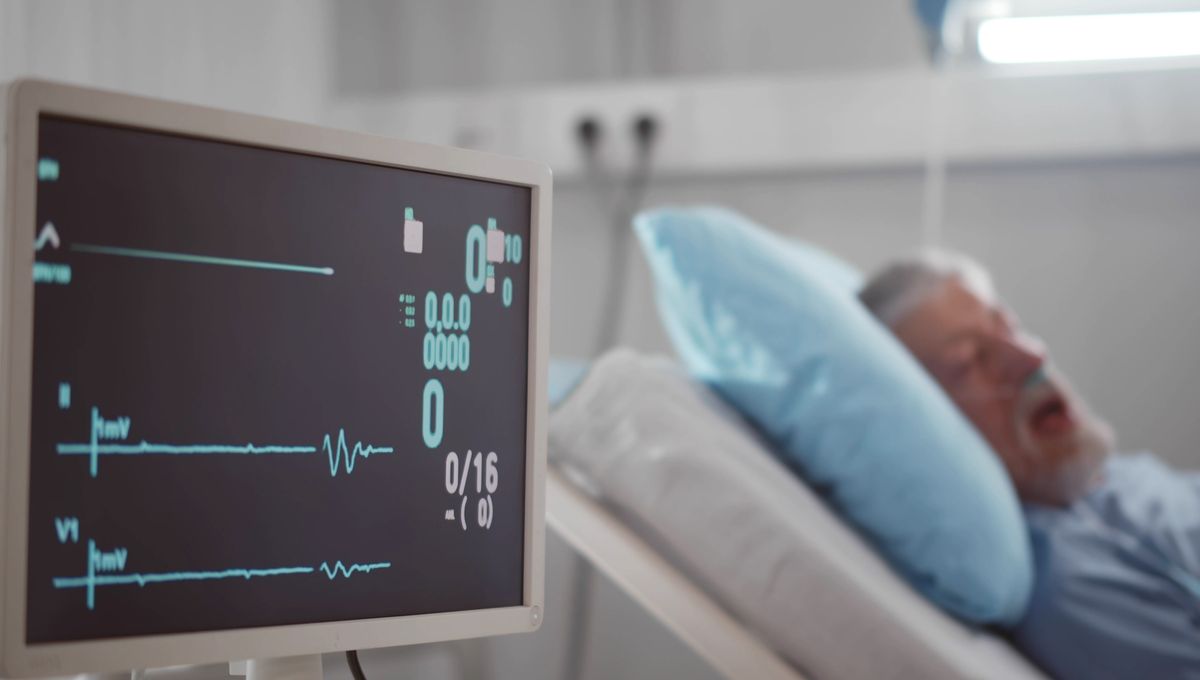
We’re all on that conveyor belt we call life, inching ever closer to our expiration date, although what happens when we finally reach the end of the line is anyone’s guess. However, over the past couple of years, researchers have gained some fascinating insights into what happens in the brain as we take our final breath, providing a tantalizing sneak peek at the experience of death.
For instance, in February 2022, scientists accidentally recorded the brain activity of an 87-year-old man as he passed away following a heart attack. Prior to this fatal moment, the patient had been fitted with a device that continually monitored his brain waves as part of his epilepsy treatment, yet the electroencephalography (EEG) recordings from the moment of his death enabled researchers to gain some unexpected insights into what happens when we cross the mortal threshold.
Amazingly, the EEG showed that brain activity patterns associated with dreaming and memory recall burst into life just as the heart stopped beating, continuing for some time after. While it’s impossible to draw any firm conclusions from this information, brain activity related to memory retrieval may indicate that we really do see our lives flash before our eyes when we die.
This possibility is further strengthened by the results of a subsequent study involving four heart attack patients who died in the neurointensive care unit (NICU) at Michigan Medicine, University of Michigan. Monitoring the patients’ neural oscillations as they passed away, researchers observed an explosion of activity within the brain’s so-called “hot zone”, which sits at the intersection of the temporal, parietal, and occipital lobes and is linked to both dreaming and conscious thought.
However, in order to understand how these brain activity patterns translate into actual experience, researchers had to talk to people who had died and come back to life. As part of an ongoing project looking into the experiences of patients who have flatlined before being resuscitated, scientists recently published insights from a series of interviews conducted at numerous hospitals in the US and UK.
Publishing part of their data back in 2019, the authors revealed that 86 percent of study participants reported seeing a bright light, while 54 percent re-lived and reviewed their major life events, confirming two of the most common cliches associated with dying. Overall, the experience of death was described as pleasant and uplifting, with 95 percent of respondents claiming to have felt a sense of joy and peace as they left their bodies, while the same proportion said the event had changed them in a positive way.
Presenting more detailed results earlier this year, the researchers reveal that many patients were actually aware of the medical procedures being carried out as they underwent CPR, despite being apparently comatose. Additionally, more than a fifth had what the authors call a “transcendent recalled experience of death,” meaning their departure and return enabled them to re-evaluate and reframe their life history, identity and purpose.
Despite these insights, death remains a murky subject that continues to evade scientific explanations. For instance, it’s unclear how or why the brain responds to its own annihilation by generating such ineffable experiences.
One theory – albeit largely speculative and unproven – is that the brain releases the potent psychedelic compound DMT as we die in an attempt to keep neurons alive in the absence of oxygen. If true, this may explain some of the spiritual insights gained at the moment of death, although more research is needed before such claims can be justified.
For now, we can’t say for sure what happens when we die. Don’t worry though, you’ll find out at some point.
[H/T: Popular Mechanics]
All “explainer” articles are confirmed by fact checkers to be correct at time of publishing. Text, images, and links may be edited, removed, or added to at a later date to keep information current.
Source Link: This Might Be What People See When They Die